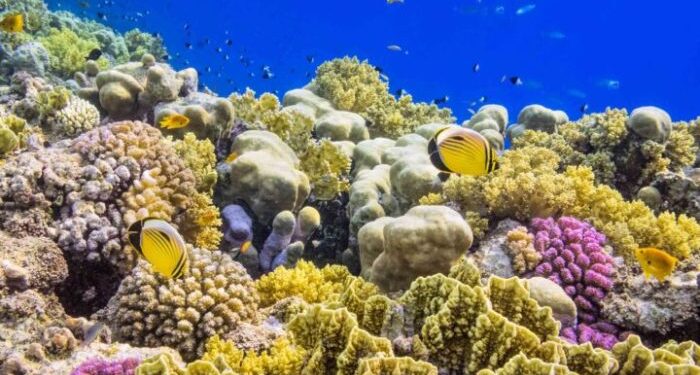Following the announcement at the last G20 Summit of the creation of the Global Coral Research & Development Accelerator Platform aiming to improve coral conservation around the world, Saudi Arabia, as the governing body of the Platform, held its first meeting in June.
Founded by 11 nations, the Global Coral Research & Development Accelerator Platform seeks to advance the science and technology needed to maintain thriving coral reef ecosystems by engaging a gender-balanced and interdisciplinary global community of scientists, coastal managers, technologists, and innovators.
G20 leaders announced the creation of the platform during the last summit and Kingdom of Saudi Arabia was elected as the inaugural chair of the Initiative Governing Committee, while the US, represented by NOAA’s Coral Reef Conservation Program, was elected as vice-chair.
Coral reef ecosystems support a quarter of all marine life, including many recreational and commercial species, support billions of dollars in tourism, and provide protection from flooding and waves. However, both shallow and deep water coral reefs are facing multiple challenges from climate impacts, fishing pressures, pollution, and more.
The Platform offers a unique opportunity to gather the world’s scientific and coral management experts to complement other existing coral research and conservation efforts during this time when we are determining the future of our coral reefs, the very foundation of myriad ecosystem services we cannot afford to lose,
…said Jennifer Koss, director of NOAA’s Coral Reef Conservation Program and vice chair of the Global Coral Research & Development Accelerator Platform.
[smlsubform prepend=”GET THE SAFETY4SEA IN YOUR INBOX!” showname=false emailtxt=”” emailholder=”Enter your email address” showsubmit=true submittxt=”Submit” jsthanks=false thankyou=”Thank you for subscribing to our mailing list”]
Specifically, the platform is expected to connect existing national, regional, and international research & development programs and engage the private sector in supporting these efforts; provide advanced research & development training to scientists; and facilitate access to scientific information as well as research and testing facilities around the globe.






























































